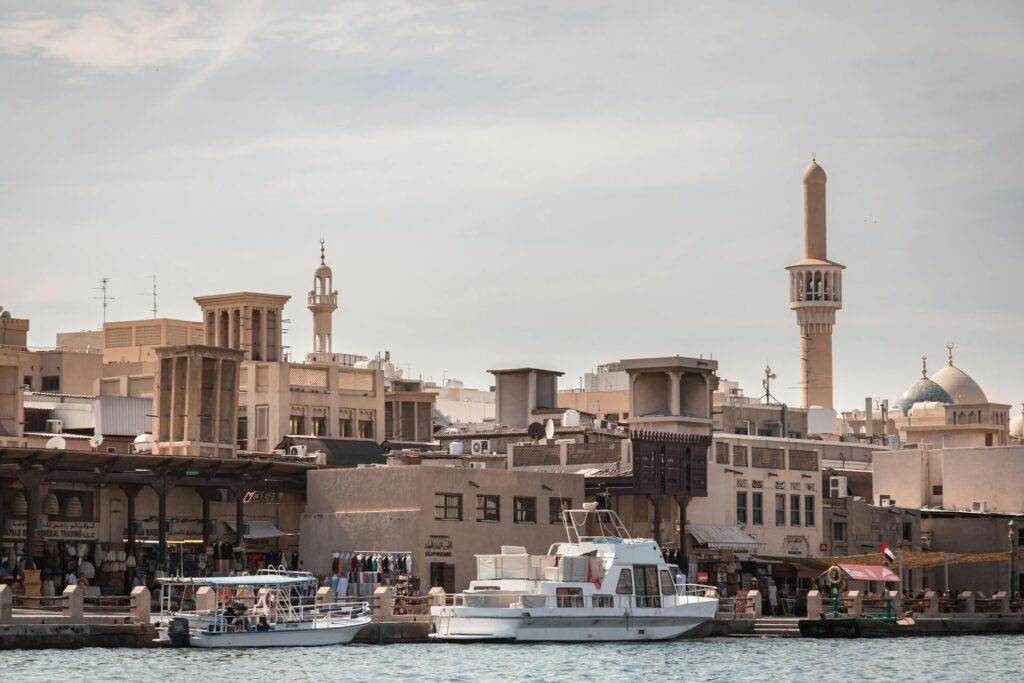
In the current wave of globalized trade, international freight forwarders play a crucial and vital role, serving as a bridge for enterprises to cross national borders and expand their markets. For those businesses aspiring to enter the Iraqi market or already deeply engaged in it, understanding and choosing the appropriate freight method is a key factor for the smooth operation of their business. Iraq’s Less than Container Load (LCL) Delivered Duty Paid (DDP) transportation service, especially its unique Double Customs Clearance and Tax-Inclusive service, is gradually becoming the preferred choice for numerous enterprises. Next, let’s conduct a comprehensive and in-depth analysis of this service to illuminate your international trade journey.
I. What is Iraq LCL DDP?
Iraq LCL DDP is a comprehensive freight delivery term, which means that the seller is responsible for all risks and costs of transporting the goods to the designated destination in Iraq. This includes handling the import customs clearance procedures, paying customs duties and other taxes and fees, until the goods are delivered to the buyer at the agreed location. Compared with other trade terms, its greatest advantage lies in providing a high level of convenience for the buyer. The buyer only needs to wait for the goods to be received at the destination without having to worry about the complicated customs clearance processes, tax calculations and payments, and many other matters.
Take, for example, a batch of small mechanical equipment in LCL exported from China to Iraq by a Chinese enterprise. Under the DDP clause, the Chinese consignor is not only responsible for transporting the loose parts from the factory to the port in Iraq but also needs to coordinate with the local customs broker to complete the import customs declaration of the goods. According to the regulations of the Iraqi customs, all kinds of customs duties, value-added taxes, and other taxes and fees must be paid, and then the goods are safely delivered to the designated warehouse of the buyer in inland Iraq. The entire logistics process is visible and controllable, and the liability is clearly defined.
II. Widely Applicable to Diverse Demands
- Small and Medium-sized Cross-border E-commerce Sellers
Small and medium-sized e-commerce sellers usually do not have a professional foreign trade and logistics team. Their energy is mainly focused on product operation and sales promotion. The quantity of goods they send to Iraq in a single shipment is not large, mostly in the form of LCL. Moreover, they find it difficult to deal with the complex and changeable international customs clearance regulations, language communication barriers, and cumbersome tax calculations. Adopting the Iraq LCL DDP transportation is like finding a solid backing for them. With just one click of an order, the goods can be directly delivered from the domestic warehouse to the hands of Iraqi customers. This not only saves the human and material resources that would otherwise be spent on delving into the logistics details but also can enhance customer satisfaction through stable and efficient logistics services, accumulate a good reputation for the store, and promote the continuous growth of the business. - Trade Newcomers Venturing into the Iraqi Market for the First Time
For enterprises that have just embarked on their trade journey in Iraq, local policies, regulations, and customs processes seem like a dense fog, difficult to navigate. A small oversight in customs clearance documents or a miscalculation of taxes and fees can lead to the goods being detained at the port, incurring high demurrage fees, and delaying the delivery time, which may result in serious losses due to breach of contract. The Double Customs Clearance and Tax-Inclusive feature of the LCL DDP service allows these newcomers to avoid these “reef hazards.” The freight forwarding company, with its professional knowledge and deep local resources, provides full protection throughout the process, helping them take their first step in overseas expansion smoothly and quickly open the door to the Iraqi market, accumulating valuable trade experience. - Enterprises with Stringent Requirements for Supply Chain Timeliness
Some industries, such as electronic components and fast-moving consumer goods, have rapid product updates and strong seasonality, and market demand changes rapidly. If an enterprise cannot replenish the goods on the shelves on time and misses the peak sales season, the losses will be immeasurable. Iraq LCL DDP, relying on a mature logistics network and a professional customs clearance team, optimizes the transportation route and conducts pre-customs declaration, greatly reducing the transportation time and ensuring that the LCL goods can be accurately delivered in the shortest possible time, maintaining the stability and smoothness of the enterprise’s supply chain, and enabling products to always gain a competitive edge in the Iraqi market.
III. Differences from Other Transportation Services Highlight Its Advantages
- Comparison with the Traditional Free on Board (FOB)
Under the FOB mode, the seller only needs to load the goods onto the ship designated by the buyer at the designated port of shipment. Subsequently, many aspects such as transportation, insurance, and customs clearance are the responsibility of the buyer. This means that the buyer has to face the unfamiliar and complex Iraqi customs clearance system alone in a foreign country, find a reliable freight forwarder, prepare cumbersome documents, and deal with customs inspections. Any mistake in any link may lead to the delay of the goods’ delivery. In contrast, under the Iraq LCL DDP, the seller takes full responsibility and coordinates the entire process, freeing the buyer from complex logistics matters and allowing them to focus on their main sales business. The division of labor between the two trading parties is clearer and more efficient. Especially for buyers lacking overseas logistics resources, the advantages of DDP are self-evident. - Compared with Cost, Insurance and Freight (CIF)
Although under the CIF term, the seller is responsible for the freight and insurance premium and transports the goods to the port of destination, the customs clearance and payment of import taxes and fees at the port of destination in Iraq are still the responsibility of the buyer. Once the goods arrive at the port, the buyer needs to urgently allocate manpower to handle the customs clearance. Any delay will result in high port fees. Iraq LCL DDP goes one step further, extending the service to “door-to-door.” The customs clearance and tax payment are completed in one go, and the inland transportation is seamlessly connected, directly delivering the goods to the door. This completely eliminates the buyer’s logistics pain points, avoids chaos in the port of destination handover, and improves the efficiency of the entire trade process. - In Comparison with General LCL Transportation Services
Ordinary LCL transportation only takes care of the basic transportation of goods, from the consignor’s warehouse to the port or airport of the destination. Customs clearance, tax payment, and delivery are not included. Iraq LCL DDP upgrades comprehensively on this basis, offering a wealth of value-added services: The professional customs declaration team is proficient in the subtle differences in Iraqi customs policies, classifies and declares the goods meticulously to ensure quick customs clearance; conducts accurate tax calculations, and based on the product’s HS code and the latest tax regulations of Iraq, eliminates the hidden dangers of overpaying or underpaying taxes and fees; the terminal distribution extends to inland cities and remote areas in Iraq. Whether it is the bustling Baghdad or the remote Mosul, it can accurately deliver the goods, ensuring that the “last mile” of the goods’ journey is worry-free.
IV. Precautions When Choosing Iraq LCL DDP Transportation
- Accurately Declare Goods Information
The consignor must provide detailed and accurate goods information, including the product name, specifications, materials, usage, quantity, unit price, etc. This information is the key basis for customs classification, valuation, and taxation. Any vague or incorrect declaration may trigger customs inspections, detention of goods, or even result in fines. For example, for a batch of decorative lamps in LCL exported to Iraq, if the common plastic material is wrongly reported as a metal material, not only will there be a deviation in the customs duty rate due to incorrect classification, but it may also be suspected of false reporting, causing the entire batch of goods to be detained at the customs, delaying the delivery and causing losses to both the buyer and the seller. - Understand the Special Policies and Regulations in Iraq
Iraq has experienced years of political unrest, and there are still special regulatory requirements in some areas. Some goods subject to United Nations sanctions or domestic control in Iraq have strict import and export restrictions. Influenced by religious customs, products such as food, pharmaceuticals, and cosmetics need to comply with specific halal standards and ingredient specifications. Although the freight forwarding company has professional control, it is beneficial for the consignor to be aware of these in advance, which is convenient for making compliance adjustments to the products and avoiding “hitting a wall” during transportation, ensuring the smooth passage of the goods throughout the process. - Select a Reliable Freight Forwarding Company
A freight forwarding company with excellent qualifications and rich experience is the cornerstone of the successful Iraq LCL DDP transportation. Examine whether it has a mature and stable customs clearance network in Iraq, high-quality customs brokers with long-term cooperation, and the ability to track the goods’ status in real-time and provide timely feedback on any abnormalities. Check whether it has sufficient transportation capacity, whether it can flexibly allocate resources for LCL consolidation by sea, chartered flights for LCL by air, or inland trucking, and ensure on-time delivery. Refer to the word-of-mouth of peers and conduct on-site factory inspections to select a reliable “steward” for the goods. - Clarify the Cost Composition and Potential Additional Costs
Although DDP is a Double Customs Clearance and Tax-Inclusive service, it is not without limitations. Before shipping, clarify all kinds of costs with the freight forwarding company. In addition to the basic freight and customs clearance taxes and fees, check whether there are additional expenses such as overweight fees, overlength fees, remote area delivery fees, and customs inspection fees (if the inspection fines are caused by incorrect declaration, the consignor shall bear the cost). Avoid sudden “cost bombs” during transportation, which may erode the profit margin, and ensure that the cost is controllable and the trade revenue is clear and calculable.
The Iraq LCL DDP transportation service, in the current complex and changeable international trade environment, is like a master key that unlocks the convenient door to the Iraqi market. Whether you are a budding e-commerce entrepreneur or a seasoned trade veteran, as long as you find the right fit for your needs and pay attention to the key precautions, and cooperate with a professional freight forwarder, you can ride the wind of this logistics service, enable the goods to smoothly reach Iraq, reap rich trade fruits in this ancient land full of opportunities, and steadily expand the global territory of your enterprise.
In the future, with the acceleration of Iraq’s reconstruction process and the continuous release of market demand, Iraq LCL DDP will surely carry more business hopes and continue to write a new chapter in international trade.





